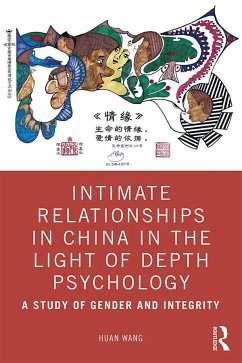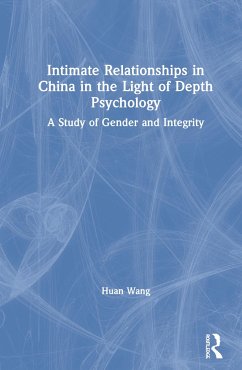
Jungian Analysis, Depth Psychology, and Soul
The Selected Works of Thomas B. Kirsch
Versandkostenfrei!
Versandfertig in 1-2 Wochen
55,99 €
inkl. MwSt.
Weitere Ausgaben:

PAYBACK Punkte
28 °P sammeln!
Thomas Kirsch is one of the foremost architects of the contemporary Jungian scene and has influenced the evolution and organization of analytical psychology worldwide. His works on the history of Jungian analysis and his memoir of a "Jungian life" have been widely appreciated and this book contains important examples of these interests. Gathered together in The Selected Works are Kirsch's original and humane contributions to diverse areas, such as: training and the dynamics of analytical institutions; clinical themes in Jungian analysis and how these differ from what typically happens in psych...
Thomas Kirsch is one of the foremost architects of the contemporary Jungian scene and has influenced the evolution and organization of analytical psychology worldwide. His works on the history of Jungian analysis and his memoir of a "Jungian life" have been widely appreciated and this book contains important examples of these interests. Gathered together in The Selected Works are Kirsch's original and humane contributions to diverse areas, such as: training and the dynamics of analytical institutions; clinical themes in Jungian analysis and how these differ from what typically happens in psychoanalytic treatment; as well as a continuation of his remarkable work into the personalities and prejudices that characterize the profession of Jungian analysis. As Andrew Samuels observes in his foreword, "In these chapters, we see Tom's humanity, generosity and flexibility". Given the multifarious dynamics of the training community, Kirsch accepts that things can sometimes go wrong, and he is open about his experiences in this regard. For Kirsch, rather than a simple question of psychologically damaged people becoming analysts, the figure of the "Wounded Healer" is always present in depth psychology. Kirsch is an exceptionally gifted communicator and several of these chapters stem from lectures and conference presentations. However, behind the appearance of informality emerges, not only a formidable intellect at work, but a warm and compassionate perspective on the human condition. The Selected Works will be of vital interest to analysts, therapists, trainees, academics, and students working in the areas of Jungian analysis and Jungian studies around the world.













